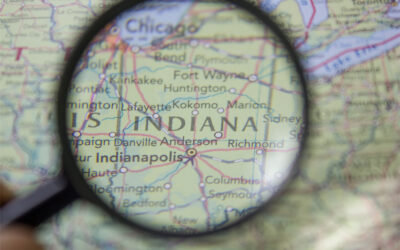Loneliness and addiction often go hand in hand. Some people are lonely because of their addiction, and some become addicted because of loneliness. However, most addicts are loneliest during recovery.
Loneliness vs. Being Alone
Loneliness is more than a lack of companionship, and being alone differs from being lonely. Many people are by themselves but don’t feel lonely, while others can feel lonely in a room full of people. True loneliness is feeling isolated or unconnected to those around us. Loneliness is a complex emotion — often we can’t connect with others because deep down we do not believe we deserve to.
Loneliness and Addiction Recovery
During and after rehab people must learn to build or rebuild their social support networks. It is easy to feel isolated and alone while you try to find the right support group, mend broken relationships, and end toxic associations with those who took part in your addiction.
Feeling isolated — particularly early in recovery — can lead to depression, anxiety, low self-esteem, or shame, any of which can cause relapse. Loneliness can make people question the value of recovery, making the path to sobriety quite slippery.
5 Ways To Battle Loneliness In Addiction Recovery
Here are 5 things to try when you are feeling lonely during your recovery.
1. Grieve the loss of your best friend — your addiction
You gain your life back when you end your addiction, but you also lose several things. Sometimes it feels like you’ve lost your best friend — your companion substance that has been there for you through recent days. You are also saying goodbye to the toxic “friendships” you formed during your addictive days. Acknowledging the loss and allowing yourself to grieve will help you move forward.
2. Talk to someone about feeling lonely
Don’t just talk to someone, talk to someone about your feelings of loneliness specifically. A quick casual chat when you are feeling lonely can be great, but to really help deal with loneliness you need to talk about it. While some have friends or family they can trust to understand their needs, many recovering addicts do not. A mental health professional or addiction counselor will help you identify the thoughts, feelings, and behaviors that are contributing to your loneliness and help you overcome them.
Addiction treatment usually provides peer-to-peer interaction during recovery. These support groups are ideal chances to re-learn social skills while providing opportunities to make new friends in a safe environment, so participate fully.
3. Rebuild your relationships
For most people, relationships and happiness go hand in hand. Restoring relationships during recovery is critical. Be aware that some of those you have hurt while during addiction will not let you back into their lives. Even if your apology is not accepted, the effort will help you regain confidence and feel connected to others. Make amends when you can, and make peace when you cannot.
Reconnecting with old friends can help improve your mental health, but don’t be afraid to end relationships that are harmful to your sobriety.
Small gestures of kindness can go a long way toward making people feel good being around you.
4. Get involved with something and keep busy. Don’t wallow in your loneliness
Exercise regularly. Not only will exercise help you heal physically and get you into shape, but it will also boost your mood by raising your levels of endorphins and dopamine. Exercise can be a great distraction from negative thoughts, and if you hit the gym or work out with family or friends, it can help you reconnect.
Volunteer. Pick a cause or organization you believe in and help them out. You are bound to meet new people who share your interests — and maybe feel good about contributing to your community.
Join a club or take a class whether it be yoga, cooking, photography, or art. Meet new people who share a common interest. Learning new things can do wonders for your sense of self-esteem and build confidence.
Get back into your old hobbies, or explore places in town that you’ve never visited. Take part in your favorite sports, read a good book, watch a movie, or take a bike ride.
Get a pet. They are wonderful companions, and basking in their unconditional love will surely help you feel less lonely. If you walk the dog, you’ll get out of the house and possibly meet other dog people!
5. Be patient with yourself. Remind yourself of the progress you’ve made in your recovery
Forgive yourself and don’t be ashamed of your past addiction. Become comfortable with who you are now, and who you are becoming. Keeping the positives in mind should make it easier to make new friends and reconnect with your community.
Acknowledge your emotions. Accept that feelings of loneliness are normal, and remember that things will get better as you continue your recovery. Understanding yourself, and enjoying your own company is a major way to fight loneliness. Doing some things by yourself will build your sense of self-reliance and independence.
Most people need a certain amount of human contact to feel good, and strong social support is necessary to maintain sobriety. It requires effort and patience to develop new relationships or rebuild damaged ones. Realize that feelings of isolation are a part of the process of addiction recovery, and remember that being alone is different from being lonely. Find a way to fight loneliness as you work to reconnect with the world.
Why Choose Bridges Of Hope?
Bridges of Hope is a Joint Commission-accredited dual-diagnosis substance abuse treatment program. Our program is designed to achieve long-term recovery. We are licensed by the State of Indiana Department of Mental Health & Addiction.
Our treatment philosophy is based on a comprehensive and integrated approach to addressing all issues related to substance use and mental health disorders. We leave nothing to guesswork as we utilize therapeutically proven, evidence-based clinical practices. We place superior patient care as our highest priority and offer them all-inclusive treatment services.
Contact us today if you or someone you love need hope, healing, and treatment for alcohol and substance abuse disorders.


 Verify Insurance
Verify Insurance
 Toll Free Call
Toll Free Call

